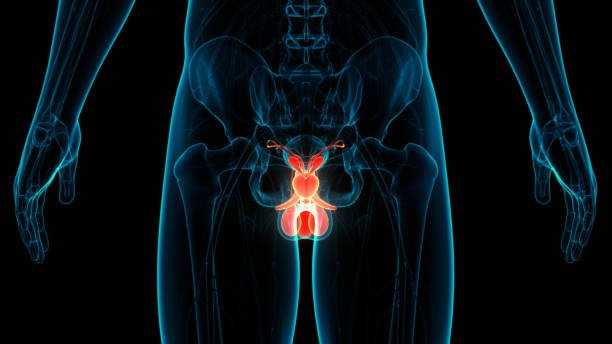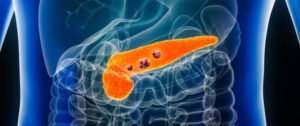
How Do the 4 Major Treatments For Prostate Cancer Affect Sexual Function? 5 Major Therapies to Help Regain Your Erectile Function
Prostate cancer is more likely to occur in middle-aged and older men. Once cancer occurs, it may affect the patient’s sexual life, including erectile dysfunction and decreased sexual desire. However, most patients are more concerned about whether the effects will also be affected after treatment. Sexual function? Among the four treatments for prostate cancer, to what extent do they affect sexual performance? Let’s take a look at how these treatments relate to sexual function.
4 major treatments for prostate cancer: each affects sexual function differently
The prostate is a reproductive organ that produces part of semen components. Because it is close to the nerves and blood vessels related to male erectile function, during prostate cancer treatment, it is likely to damage the erectile nerve and blood vessel plexus, resulting in erectile dysfunction. obstacle.

According to statistics, 60% of patients will have varying degrees of erectile dysfunction after surgery, which generally requires a recovery period of several weeks or more than a year. This also deters many patients from prostate cancer treatment.
- Total prostate removal surgery
If the tumor does not invade the sexual neurovascular bundles on both sides of the prostate, it can still be preserved whether using traditional laparotomy surgery or robotic assisted laparoscopic prostatectomy. Sexual nerves, therefore, are less likely to affect sexual function.
If the tumor does not invade the sexual neurovascular bundles on both sides of the prostate, it can still be preserved whether using traditional laparotomy, traditional laparoscopic surgery or robotic assisted laparoscopic prostatectomy. Sexual nerves, therefore, are less likely to affect sexual function. - Radiation therapy
Radiation therapy can block the growth of prostate cancer cells, but it can also cause neurovascular necrosis. If the tumor is too large, sexual nerves may not be preserved in order to completely remove the lesions, which will affect the patient’s sexual function.
If you receive radiation therapy, about 25 to 50% of patients will develop erectile dysfunction; if you use standard external radiation therapy, about 50% of patients will have erectile dysfunction; if you have other diseases that affect erectile function, such as diabetes and cardiovascular disease, you will have erectile dysfunction. It is more difficult to return to preoperative sexual function. - Cryotherapy
If the patient is elderly, suffers from other cardiovascular diseases, and is at high risk of surgical anesthesia, and if the cancer cells only invade one side of the prostate, unilateral cryotherapy can be used, which is a process of extreme low temperature and rewarming. Kill tumors; this treatment method varies depending on the scope of treatment. If the lesion is far away from the sexual nerve, sexual function can be preserved intact. - Hormone treatment
Hormone therapy will reduce the concentration of male hormones required for the growth of prostate cancer cells, which will have an impact on sexual desire and penile erection. Long-term use may make the testicles and penis smaller.

Sexual dysfunction after prostate cancer surgery
According to statistics, 60% of prostate cancer patients will experience erectile dysfunction of varying severity after surgery, which may require a recovery period of several weeks or more than a year. Among them, erectile dysfunction commonly known as “blank bomb” or “dry erectile dysfunction” may occur. Although orgasm without ejaculation does not affect health, those who still want to have children must consult a doctor to find a solution.
In addition, research also shows that the younger the prostate cancer patient is, or the sexual function is better before surgery, the recovery and sexual life after surgery will be less affected.
After prostate cancer surgery: 5 treatments to improve sexual function
- Phosphodiesterase type V inhibitor
Phosphodiesterase type 5 inhibitor is an oral drug used to treat erectile dysfunction. If the patient still retains sexual nerves after surgery, taking the drug can help prevent atrophy of the corpus cavernosum and restore erectile function as soon as possible. - Corpora cavernosa drug injection
When oral medications are not as effective as expected, you can try this method to help restore sexual function - Artificial penis surgery
Artificial penis surgery is also called artificial penis implantation. Doctors implant silicone into the cavernous body of the penis to help patients achieve erections. - Medical Penis Pump
This method can be used if the patient cannot accept drug treatment; in addition, it can also be used in combination with oral drugs. - Low energy extracorporeal shock wave therapy
Low-energy shock wave therapy uses a machine to create shock waves, causing small trauma to cells, increasing local inflammation, and promoting the formation of new blood vessels.
All in all, if patients with prostate cancer have poor sexual function recovery after surgery, please don’t be discouraged. There are many treatments available to help “regain success.” The key is to consult a professional urologist for professional assistance.













